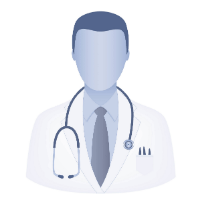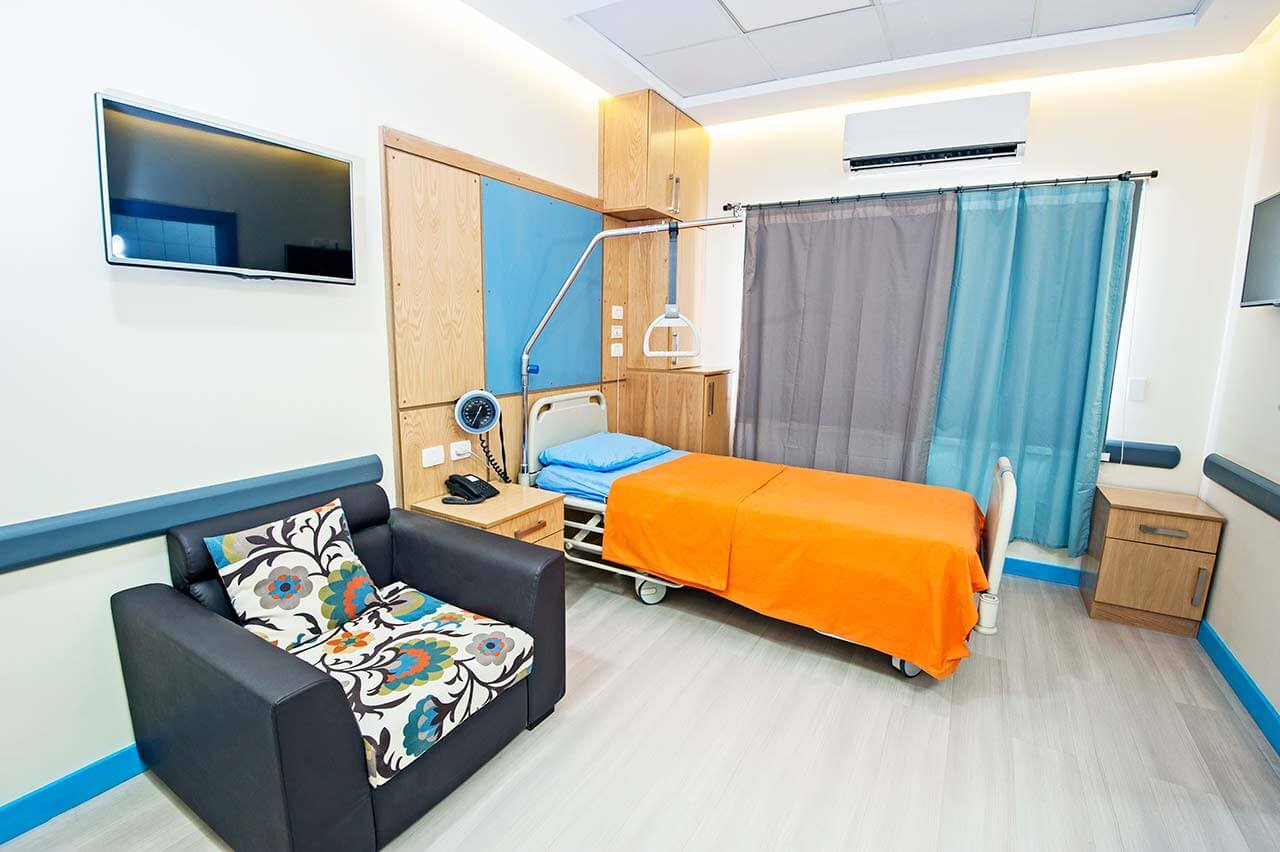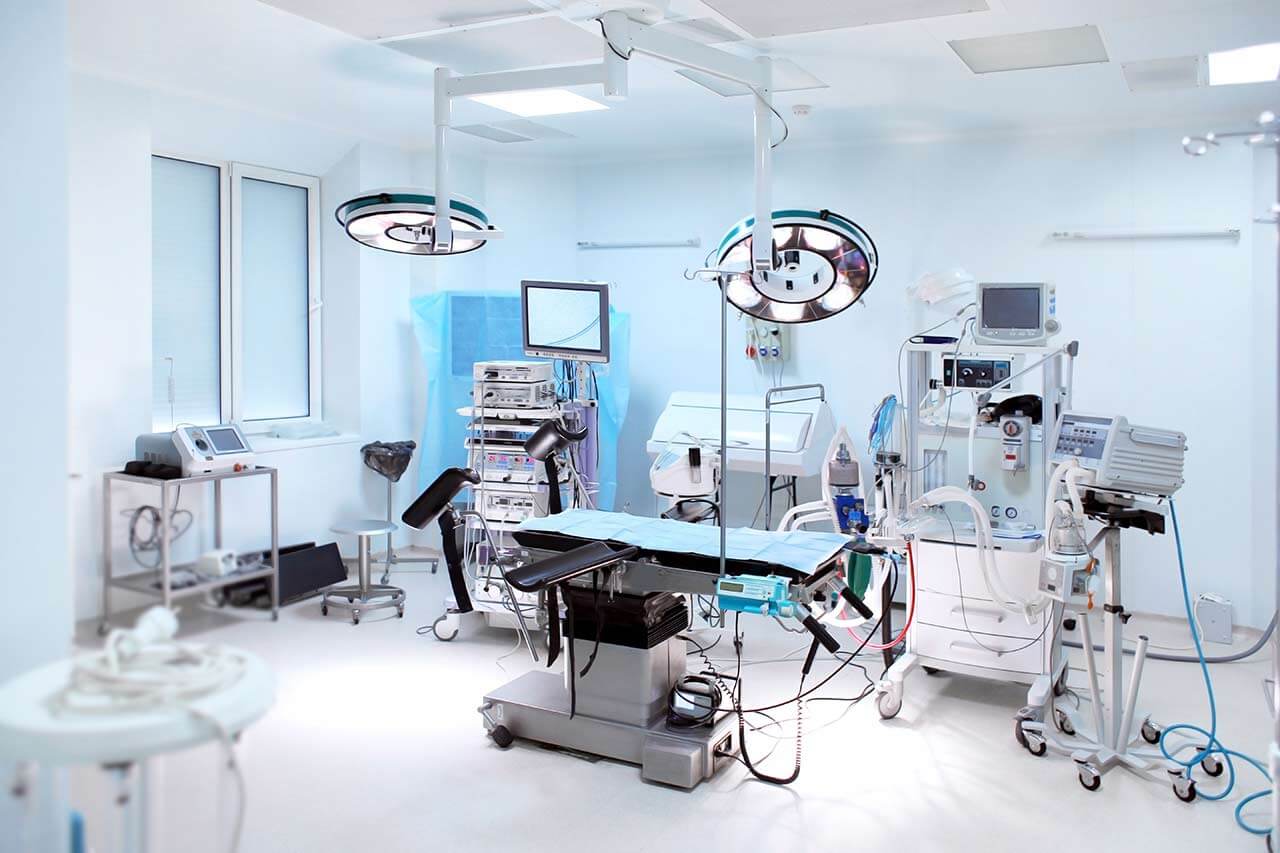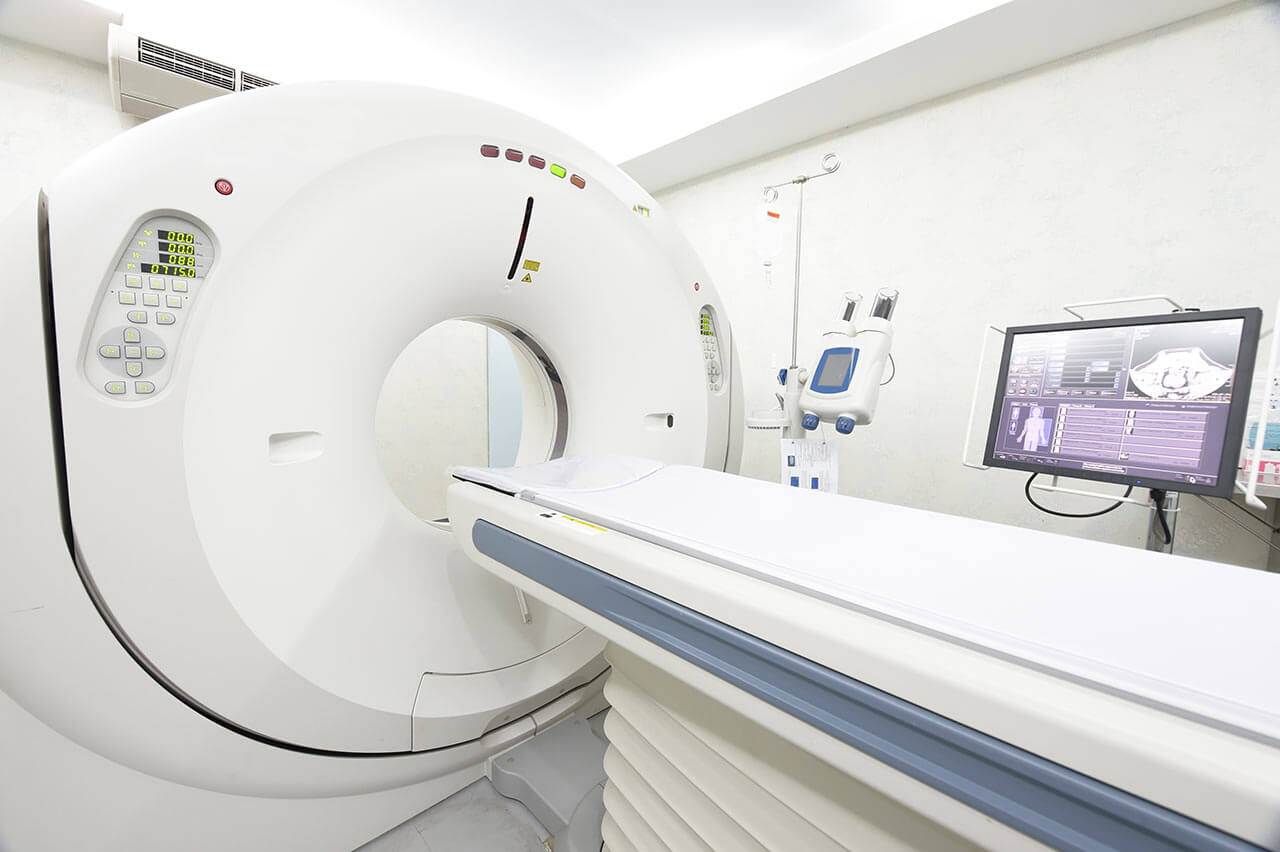
The program includes:
- Initial presentation in the clinic
- clinical history taking
- review of medical records
- physical examination
- laboratory tests:
- complete blood count
- hormonal analysis
- pull test
- scalp biopsy with histiological examination (on indication 1200 €)
- nursing services
- consultation of related specialists
- consultation of the chief physician and all leading experts
- development of individual treatment plan
- written statement
Required documents
- Medical records
- Photo of the affected area(s) from different angles
Service
You may also book:
 BookingHealth Price from:
BookingHealth Price from:
About the department
According to the Focus magazine, the Department of Adult and Pediatric Dermatology, Allergology and Phlebology at the University Hospital Carl Gustav Carus Dresden ranks among the best German medical facilities specializing in the treatment of skin diseases and skin cancer!
The department offers the full range of diagnostics and treatment of various skin diseases, allergic reactions, sexually transmitted infections, as well as venous pathologies. The department admits both adults and children. Of particular interest is the treatment of various types of skin cancer. The department is equipped with state-of-the-art technologies, for example, systems for carrying out photodynamic therapy, laser systems and other equipment for the effective treatment of the above mentioned diseases. The department annually admits about 3,000 inpatients, and more than 16,000 outpatients. The department's specialists also annually carry out more than 4,100 surgical interventions of varying degrees of complexity. Such high rates testify to the outstanding quality of medical care and the reputability of the medical facility in Germany.
The department is headed by Prof. Dr. med. Stefan Beissert. The specialist is a recognized expert in dermatology in Germany and Europe. According to the prestigious Focus magazine, he ranks among the best German doctors!
Special attention is paid to the treatment of skin tumors. After surgical removal of the tumor or confirmation of the diagnosis of skin lymphoma, the patient undergoes regular follow-up examinations. Immunotherapy is used for the treatment of high-risk melanoma patients, while the treatment of metastatic melanoma patients is based on chemotherapy in accordance with current international recommendations. A distinctive feature of the department in this field is access to national and international clinical trials of innovative drugs and advanced treatment methods, which in many cases can prolong a person's life.
Psoriasis treatment is also one of the important areas of the department's clinical activity. Psoriasis is a non-infectious skin disorder, in which a reddish-pink, scaly rash forms on the skin. Pathology refers to a fairly common skin disease. Such tests as blood count, skin scrapings to rule out fungal infections, pustule testing, and skin biopsy are commonly used to confirm or exclude the diagnosis. Some patients are also recommended X-ray in order to rule out psoriatic joint lesions. Psoriasis treatment is based on symptomatic therapy. The patients are prescribed medicines that can relieve inflammation and prevent the onset of new rashes. A special diet is an important part of psoriasis treatment. In addition, the normalization of the lifestyle and the elimination of stress factors have a beneficial effect on improving the health condition of the patient with psoriasis. Phototherapy is often prescribed.
Another focus of the department's clinical practice is the diagnostics and treatment of allergic diseases. The department is often visited by patients with allergic rhinitis, allergic conjunctivitis, pollen and pet allergies, atopic dermatitis, allergic bronchial asthma, food intolerance, drug allergy, occupational allergic reactions, etc. The department's doctors have a wide arsenal of methods for dealing with allergic diseases. These are drug therapy, allergen-specific immunotherapy, anti-IgE therapy, acupuncture, and phototherapy. The required set of therapeutic measures is selected taking into account particular clinical data.
The department's therapeutic offer is complemented by the treatment of venous diseases. The primary focus is on the treatment of varicose veins and spider veins. The first-line treatment is usually pharmacotherapy. If varicose veins have reached a stage at which drug therapy does not ensure satisfactory results, such treatment options as foam sclerotherapy or endovascular intervention are considered.
The department's range of medical services includes:
- Dermatology
- Diagnostics and treatment of skin tumors
- Melanoma
- Lymphoma
- Merkel cell carcinoma
- Squamous cell carcinoma
- Diagnostics and treatment of occupational skin diseases (for example, eczema)
- Diagnostics and treatment of urticaria (including chronic recurrent types)
- Diagnostics and treatment of angioedema
- Diagnostics and treatment of systemic mastocytosis
- Diagnostics and treatment of skin manifestations of sexually transmitted infections
- Diagnostics and treatment of autoimmune skin diseases
- Systemic lupus erythematosus
- Dermatomyositis
- Systemic scleroderma
- Mixed collagenoses
- Bullous autoimmune skin diseases (for example, bullous pemphigoid)
- Vasculitis
- Diagnostics and treatment of immunodeficiencies
- Diagnostics and treatment of neurodermatitis
- Diagnostics and treatment of skin diseases in children
- Phototherapy for skin diseases
- Psoriasis
- Neurodermatitis
- T-cell skin lymphomas
- Itching
- Prurigo nodularis
- Aesthetic and laser treatments
- Removal of age spots
- Treatment of hyperhidrosis
- Treatment of wrinkles
- Fractional laser therapy
- Expansion of blood vessels (rosacea)
- Removal of unwanted hair
- Scar revision
- Phototherapy for skin rejuvenation
- Removal of tattoos
- Diagnostics and treatment of skin tumors
- Allergology
- Diagnostics and treatment of insect venom allergy
- Diagnostics and treatment of pet allergy
- Diagnostics and treatment of pollen allergy
- Diagnostics and treatment of food allergy
- Diagnostics and treatment of drug allergy
- Diagnostics and treatment of contact dermatitis
- Diagnostics and treatment of hand eczema
- Diagnostics and treatment of allergic rhinitis
- Diagnostics and treatment of allergic bronchial asthma
- Phlebology
- Diagnostics and treatment of varicose veins and spider veins
- Endovascular therapy
- Foam sclerotherapy for varicose veins
- Microsclerotherapy for spider veins
- Diagnostics and treatment of varicose veins and spider veins
- Other medical services
Curriculum vitae
University Education and Professional Career
- 1984 - 1991 Study of Human Medicine at the Faculty of Medicine, Georg August University of Goettingen.
- 1991 Thesis defense. Subject: "Research on the production of tumor necrosis factor in colorectal adenocarcinoma: in vivo analysis by in situ hybridization".
- 1992 One-year practice as Assistant Physician in the Department of Dermatology at the University Hospital Muenster.
- 1993 Admission to medical practice, Department of Dermatology at the University Hospital Muenster.
- 1993 - 1995 German Research Foundation Scholarship, Massachusetts General Hospital, Dermatobiology Research Center, Department of Dermatology, Harvard University, Boston, USA.
- 1996 Research Fellow, Department of Dermatology at the University Hospital Muenster.
- 1998 Assistant Physician, Department of Dermatology at the University Hospital Muenster.
- 1999 Board certification in Dermatology and Venereology.
- 2000 Senior Physician, Department of Dermatology at the University Hospital Muenster.
- 2000 Specialization in Allergology.
- 2000 Habilitation and Venia Legendi. Subject: "Mechanisms of immunosuppression by ultraviolet radiation and its significance for cutaneous carcinogenesis", Faculty of Medicine, University of Muenster.
- 2001 Additional qualification in laboratory diagnostics of skin and sexually transmitted infections.
- 2002 Additional qualification in Phlebology.
- 2001 - 2003 Work in the Department of Experimental Immunology at the Helmholtz Center for Infection Research in Braunschweig.
- 2002 - 2005 Distance Course, Healthcare Economics.
- 2005 Offer to take the position of W2 Professor at the Faculty of Medicine of the Westphalian Wilhelms University of Muenster and the position of Head of the Department of Photobiology and Phototherapy.
- 2006 Managing Senior Physician, Department of Dermatology at the University Hospital Muenster.
- 2007 Qualification in drug tumor therapy.
- Since 2012 Head Physician of the Department of Adult and Pediatric Dermatology, Allergology and Phlebology at the University Hospital Carl Gustav Carus Dresden.
Membership and Activities in Committees
- Since 09.2008 Department Editor, Journal of Investigative Dermatology.
- Since 01.2004 Assistant Editor, Experimental Dermatology.
- Reviewer of the German Research Foundation, German Cancer Control Foundation, FWF Österreich, SID, ADF, EADV, ESDR.
Research Focuses
- Immunodermatology.
- Dermato-oncology.
- Infectology.
- Photodermatology.
Photo: (с) depositphotos
About hospital
According to the reputable Focus magazine, the University Hospital Carl Gustav Carus Dresden ranks among the top five German hospitals!
The hospital is the benchmark for modern high-quality medicine. Positioning itself as a maximum care medical facility, the hospital represents all medical fields. There are 26 specialized departments, 6 institutes and 17 interdisciplinary centers, which cooperate closely with the clinical and scientific facilities of the Faculty of Medicine. The basis of successful practice is excellent equipment, which is regularly updated, as well as highly qualified, experienced medical personnel: world famous doctors and professors work here for the benefit of patients.
In addition to its main goal of caring for patients, the hospital is also active in training and professional development of medical personnel, as well as in the field of public health care. The priority focus of the work is research activity, which allows the doctors to introduce the innovative diagnostic and therapeutic techniques into clinical practice.
A special feature of the hospital is also the diagnostics and treatment of rare diseases. State-of-the-art equipment and well-coordinated work of doctors of various medical specialties make it possible to timely recognize pathologies rarely encountered in medical practice and select the most effective therapy. Specialization in rare diseases include neurology, endocrinology, hematology/oncology, and rare autoimmune diseases.
The hospital has 1,410 beds for patient hospitalization. About 55,900 inpatients and more than 233,975 outpatients undergo treatment here annually. A large medical team, consisting of about 1,000 highly qualified doctors, as well as over 2,000 nursing staff take care of the patients' health. Each patient is guaranteed an individual approach and the most effective treatment in accordance with current clinical protocols.
It should be noted that the university hospital enjoys an impeccable reputation not only in Germany, but also far beyond its borders, including Arab countries, post-Soviet states, Great Britain and the United States. Patients from different parts of the world come here for high-quality treatment for diseases of any severity. The highest credit of patient confidence is the main indicator of the fruitful work of doctors.
Photo: (с) depositphotos
Accommodation in hospital
Patients rooms
The patients of the University Hospital Carl Gustav Carus Dresden live in comfortable rooms made in bright colors and equipped with everything necessary. The standard patient room includes an automatically adjustable bed, a bedside table with a sliding table, a wardrobe, a telephone and a TV. There is also Wi-Fi (free) in the patient rooms.
If desired, patients may live in enhanced comfort patient rooms. These patient rooms have a more sophisticated design, upholstered furniture and a safe for storing valuables.
Meals and Menus
The patients of the hospital are offered a tasty, healthy and varied three meals a day. The menu is based on local cuisine and seasonal food. If you for some reason do not eat certain products, please inform the medical staff of the hospital in advance, and you will be offered an individual menu. The nutrition provided in the hospital is certified in accordance with the quality standards of the German Nutrition Society (DGE) for catering in German hospitals.
Further details
Standard rooms include:
Religion
The religious services are available upon request.
Accompanying person
Your accompanying person may stay with you in your patient room or at the hotel of your choice during the inpatient program.
Hotel
You may stay at the hotel of your choice during the outpatient program. Our managers will support you for selecting the best option.
The hospital offers a full range of laboratory diagnostic procedures (general, hormonal, tests for tumor markers, infections, antibodies, etc.), genetic tests, various modifications of ultrasound scans, CT scans, MRI and PET / CT, angiography, myelography, biopsy and other examinations. Treatment with medications, endoscopic and robotic operations, stereotaxic interventions is carried out here, modern types of radiation therapy are also used. The hospital offers patients all the necessary therapeutic techniques.
- Cochlear implantation
- Deep brain stimulation
- Treatment of benign prostatic hyperplasia with green laser
- Da Vinci prostatectomy
- Bone marrow transplantation
These are head and neck tumors, hearloss, amyotrophic lateral sclerosis, epilepsy, Parkinson disease, infertility, malignant tumors of the reproductive system, congenital anomalies of the genital organs and the urinary system, urinary incontinence, blood clotting disorders, leukemia and other pathologies.
- Otolaryngology (Center for Cochlear Implantation)
- Neurology and Epileptology
- Urology
- Oncology
- Gastroenterology and Hepatology
About 1,000 highly qualified doctors work at the hospital.





